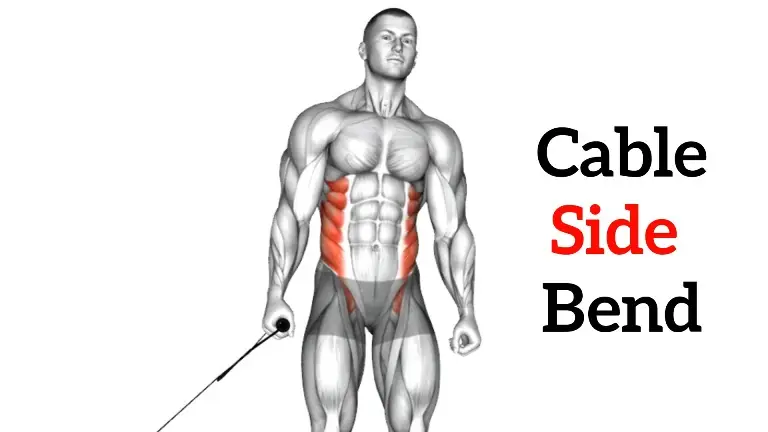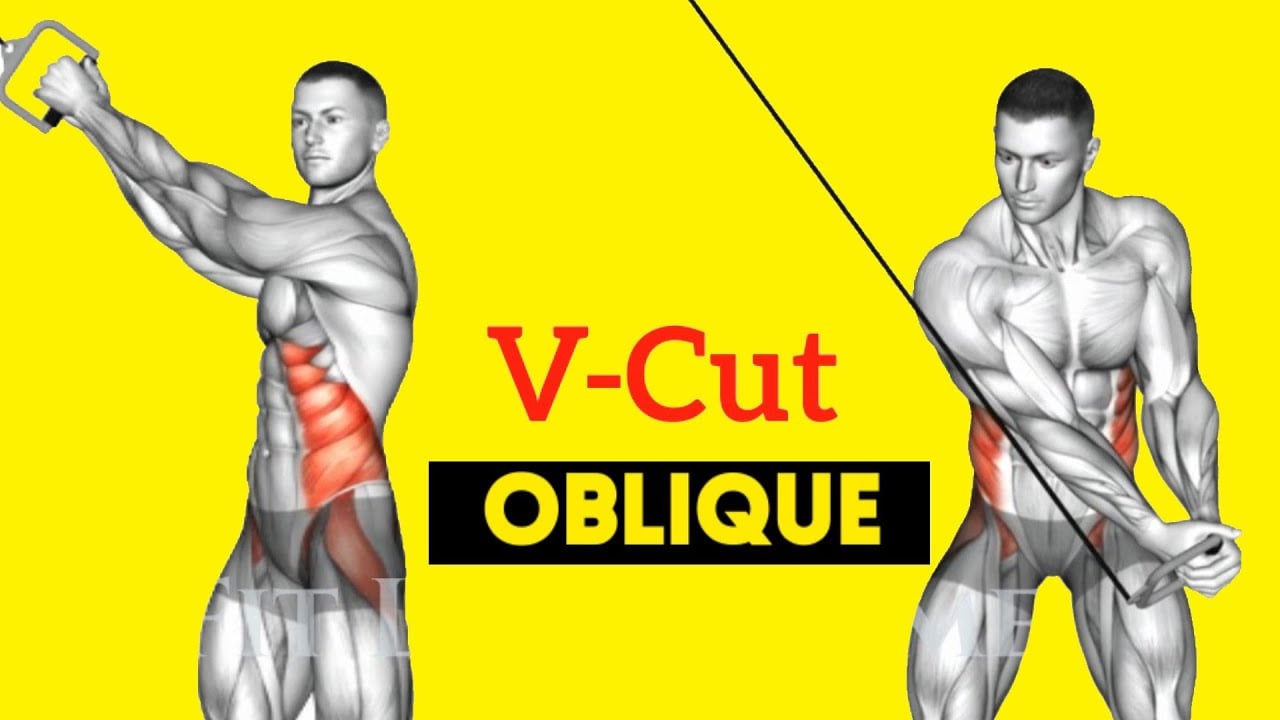The cable side bends effectively target the internal and external obliques, strengthen the lateral flexion of your spine, improve spinal mobility, and help to develop a strong and stable core.
Unlike traditional dumbbell side bends (which can sometimes strain the lower back), the cable machine provides constant tension. This forces your obliques to work harder throughout the entire range of motion.
When done with the right form and technique, it can greatly increase the overall core strength and stability.
- For an easier variation, you can do a bodyweight side bend.
- Use a cable machine for the challenging side bend oblique exercise variation.
Know More Body Fat %: Use Our Free Body Fat Calculator

Cable Side Bend Muscles Worked

- Primary Muscles: External & Internal Obliques
- Secondary Muscles: Erector Spinae, Quadratus Lumborum, Rectus Abdominis (Abs) & Hip Stabilizers (glutes & hip flexors for balance)
How To Do Cable Side Bend
- Attach a D-handle to a low pulley on a cable stack. Stand sideways to the machine, a foot or two away, so the cable is strained right from the start.
- Grasp the D-handle with your right hand and stand with the pulley to your right side.
- The feet should be about hip-width apart, maybe slightly wider for stability.
- Keep a soft bend in your knees – don’t lock them out. Stand tall, chest up, shoulders back and down.
- Your torso should be laterally flexed (bent sideways) towards the pulley, and your arm should be straight and close to your body.
- Bend your torso away from the pulley and pull the D-handle upwards. Think about lengthening the side of your body closest to the machine. Don’t twist or lean forward/backwards.
- Slowly lower the D-handle back to the starting position by bending your torso towards the pulley.
- Complete all of your reps on the one side with controlled, deliberate movement, then turn around and repeat on the other side.
Know More: 100+ Ways To Lose Weight (Proven Techniques)
Proper Form And Tips
- A common mistake is leaning too far, which can strain your lower back. The bend should be subtle; about 15–20 degrees is enough to hit the obliques without compromising your spine.
- Keep your hips still. If they’re swaying, you’re cheating the movement, and your obliques won’t get the full benefit.
- In years of training people, I’ve noticed that people love to rush this one. Slow it down. When you feel your obliques stretch and contract completely, the magic happens.
- After an intensive set of side bends, rest two or three minutes before working your other side so that your performance on the latter doesn’t suffer. Alternate the side you work on first from workout to workout.
- Avoid loading the heavyweight for this exercise. Large, overdeveloped oblique muscles will make your waist appear bulky.
- My clients often adjust the cable to mid-height to change the resistance angle. This keeps things fresh and challenges the muscles differently.
Benefits of Side Bend
- Side bends bring balance to the entire body. They lengthen the abdominal, hip, and thigh muscles while improving spine flexibility.
- It contributes to a stronger core, reduces the risk of back pain, and improves functional movements such as serving a tennis ball or carrying a heavy object on one side of the body.
- Side bends stretch the abdominal muscles and digestive organs, aiding and regulating digestion, elimination, and metabolism.
- Training the oblique muscles will help shape and tone the waistline and eliminate the extra fat layer around it.
Related Posts: Most Effective Abs & Oblique Cable Exercises & Workout

Manish is a NASM-certified fitness and nutrition coach with over 10 years of experience in weight lifting and fat loss fitness coaching. He specializes in gym-based training and has a lot of knowledge about exercise, lifting technique, biomechanics, and more.
Through “Fit Life Regime,” he generously shares the insights he’s gained over a decade in the field. His goal is to equip others with the knowledge to start their own fitness journey.

